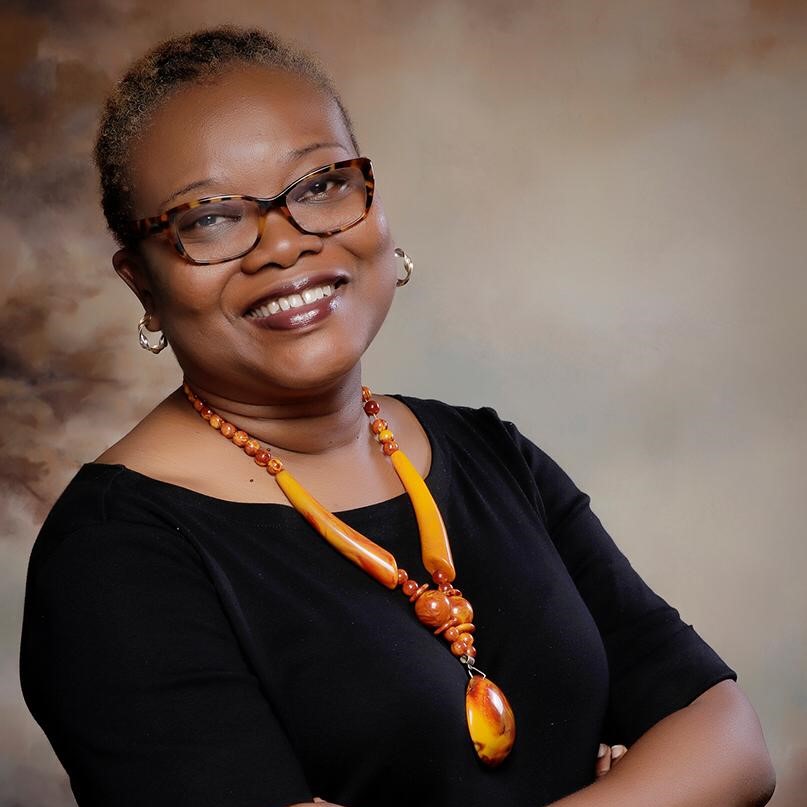Oluwakemi Okenyodo, Executive Director at Partners West Africa Nigeria, on the challenges of policing in Nigeria during the pandemic
May 25, 2020
This interview is part of a longer article. Read the full post “Justice in the time of COVID-19: Innovations to preserve rule of law, rights & safety in Nigeria” here.
Q: How prepared was the Nigeria Police Force to handle the COVID-19 pandemic?

A: Since the lockdown issued by President Muhammadu Buhari, the Nigeria Police Force has found itself at the forefront of ensuring compliance with the lockdown directives by members of the public. The Nigeria Police Force, like most of the government agencies in Nigeria, were not prepared for the situation in which the country finds itself. There has been no special training for the police officers apart from their routine training, which many of us in civil society have argued is outdated.
The police ought to be trained on how to be first responders and interact more with the citizens in a way that raises awareness about the pandemic and encourages people to obey the lockdown directive for their safety. What is lacking is a police force that exercises restraint in using the force they are accustomed to using and one that puts on a human face in discharging their authority. The majority of the police rank and file officers who interact with citizens on a daily basis are the least educated and therefore more prone to use force to ensure obedience or to extort bribes from citizens. They lack the social skills to engage peacefully with the public and have difficulty in balancing the rights of citizens against their duties.
Q: Why have we seen so much violence from the police during this period? What does this mean for Nigeria’s adoption and implementation of community policing?
A: Excessive use of force by the police on citizens continues to be a challenge despite various attempts by the government, including the Nigerian Police Force itself, and civil society, to address this issue. The police organization has to double its efforts to ensure its officers are trained and reoriented to be service inclined.
The police need to see citizens, who are the taxpayers, as their bosses and understand that they are answerable to citizens. Accountability of the police to members of the public and other stakeholders needs to be strengthened through multiple strategies. For example, the National Human Rights Commission, Police Service Commission, and the Complaints Response Units need to be proactive and dynamic.
There is a lot of public mistrust of the police and this is heightened in light of the COVID-19 pandemic as a result police misconduct. Sadly, Nigerians, out of necessity, have taken matters into their own hands, as has been seen in Lagos, where citizens on the mainland formed vigilante groups to protect themselves from criminal gangs such as “the one million boys.”
With proper guidance on community policing, Nigerian citizens will serve as a supportive mechanism to the Nigerian police force. The police need to be proactive and discerning in discharging their duties so as to gain public trust and respect. Without building upon public trust, community policing is sure to fail as, community support is essential to the police maintaining law, peace, and order.
Q: What is the Nigerian Police Force doing to ensure the safety of officers as they interact with citizens?
A: Apart from the orientation about the preventive measures that need to be taken in order to keep safe against the COVID-19 virus, I do not think there is any coordinated organizational response of providing personal protective equipment kits for police officers on the frontline.
When the lockdown order was issued by the President, the Inspector-General of Police issued a directive, that indiscriminate arrests and detention should not be made by the police. Recently Partners West Africa Nigeria issued a statement calling on the federal and state governments to provide personal protective equipment and essential infrastructure to the police. The statement can be found on our website. Many police stations lack the basics, such as running water or soap, let alone masks, hand sanitizers, and other equipment to operate safely.
Q: What role is the police going play in responding to COVID-19 now that lockdown restrictions in Abuja have been eased?
A: They will continue to play this dual role of enforcing government guidelines requiring face masks and social distancing alongside their primary responsibility of maintaining law and order. The society still faces its normal challenges, criminality still exists. Gender-based violence, such as domestic violence, has peaked during the lockdown period because victims were confined in the same space as their abusers.
About Partners West Africa Nigeria
The Rule of Law and Empowerment Initiative is also known as Partners West Africa Nigeria (PWAN). We are a non-governmental organization dedicated to enhancing citizens’ participation and improving security governance in Nigeria and West Africa broadly, which we achieve through our Rule of Law and Citizens Security Program Areas.
The organization does this through research, collaborative advocacy, capacity building, dissemination of information and integrating the implementation of government policies such as United Nations Resolution 1325, Women Peace and Security Second Generation National Action Plan (NAP 2), Prevention and Countering Violent Extremism National Action Plan (P/CVE NAP), Administration of Criminal Justice Act/Law (ACJA/L), UN Resolution 2250 amongst others which are complementary to our strategic objectives.
We are a member of the Partners Network which is a network of 22 like-minded national organizations around the world, united by common approaches including participatory decision making, collaborative advocacy, consensus building and social entrepreneurship for democratic governance.
